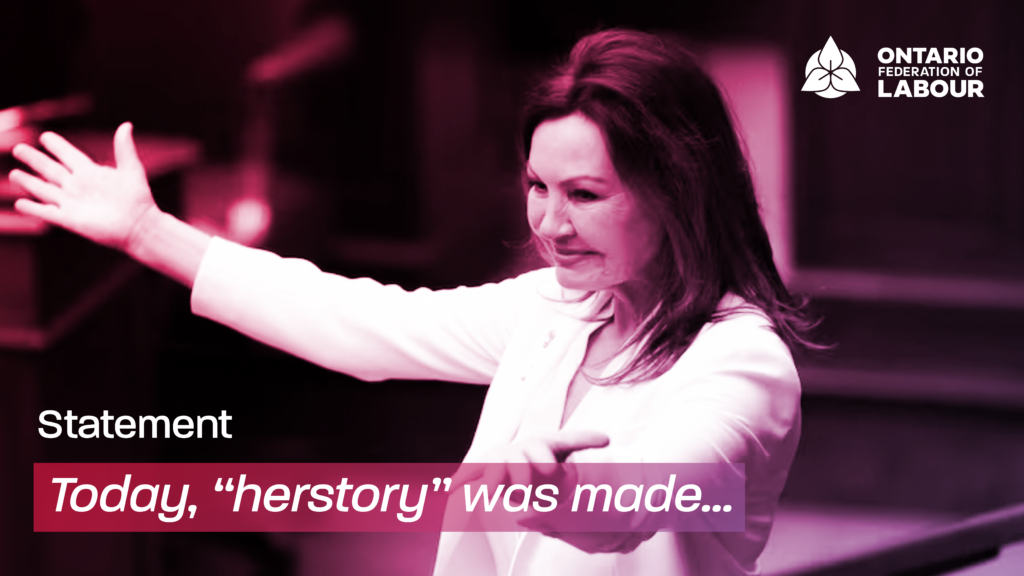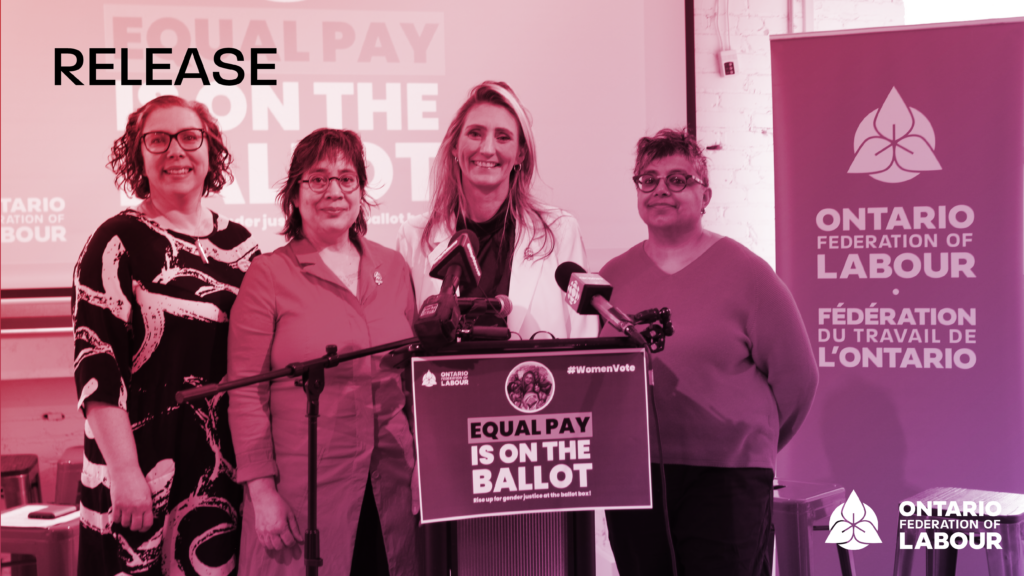
Toronto, Ontario — Ontario unions have signed a pledge, as organized by the Ontario Federation of Labour, to negotiate paid leave for survivors of domestic and sexual violence in all collective agreements. This announcement comes one day before the International Day for the Elimination of Violence Against Women, and with Bill 26, Domestic and Sexual Violence Workplace Leave, Accommodation and Training Act, 2016 before the legislature.
Part of the bargaining priority will be to focus on workplace training on the effects of domestic and sexual violence in the workplace, and violence prevention. To support this negotiation table priority, the Ontario Federation of Labour (OFL) has released a guide for unions titled Domestic Violence Goes To Work Every Day: A Bargaining Guide.
The pledge and the release of the bargaining guide also coincide with a meeting today between an OFL-led delegation of labour leaders and Premier Kathleen Wynne, Minister of Labour Kevin Flynne and Minister Responsible for Women’s Issues Tracy MacCharles, in which the OFL will call for designated paid leave for domestic and sexual violence survivors, and the quick passage of Bill 26.
“No woman should have to choose between her safety and her job,” said OFL Secretary-Treasurer Patty Coates. “The labour movement has worked hard to make work safer for women by addressing sexual harassment and violence in the workplace. Domestic and sexual violence affects the lives of our members both on and off the job, and we want to ensure that survivors get the support they need.”
By bringing domestic and sexual violence issues to the bargaining table, unions are working to ensure that critical workplace training and education is available for workers and employers, to provide protections for workers trying to escape abuse.
The bargaining guide provides model language that is carefully crafted to provide a range of support measures beyond paid leave. These include confidentiality of employee details; workplace safety planning strategies such as referral of employees to appropriate support services; training for contact people in the workplace; flexible work arrangements; and no adverse action or discrimination on the victims.
The following unions have signed on to making negotiating paid leave and workplace training a bargaining table priority: COPE, CUPE, ETFO, IAMAW, IBEW, OECTA, OPSEU, OSSTF, PSAC, The Society of Energy Professionals, UFCW, UNIFOR, USW, and WORKERS UNITED.
The OFL’s www.MakeItFair.ca campaign takes on issues of inequality in the workforce, and coincides with the province’s “Changing Workplaces Review.” The campaign gives voice to unions’ demands for across-the-board changes to the Employment Standards Act and the Labour Relations Act that would improve standards for every worker and make it easier for them to join a union.
The OFL represents 54 unions and one million workers in Ontario. For information, visit www.OFL.ca and follow @OFLabour on Facebook and Twitter.
–30–
For further information contact:
Meagan Perry, Director of Communications, Ontario Federation of Labour
Email: mperry@ofl-org.flywheelsites.com
Phone: 416-894-3456
Background:
To download the bargaining guide: Domestic Violence Goes To Work Every Day: A Bargaining Guide.
To read the pledge click here.
To see the OFL thunderclap on this issue click here.
Cope343


